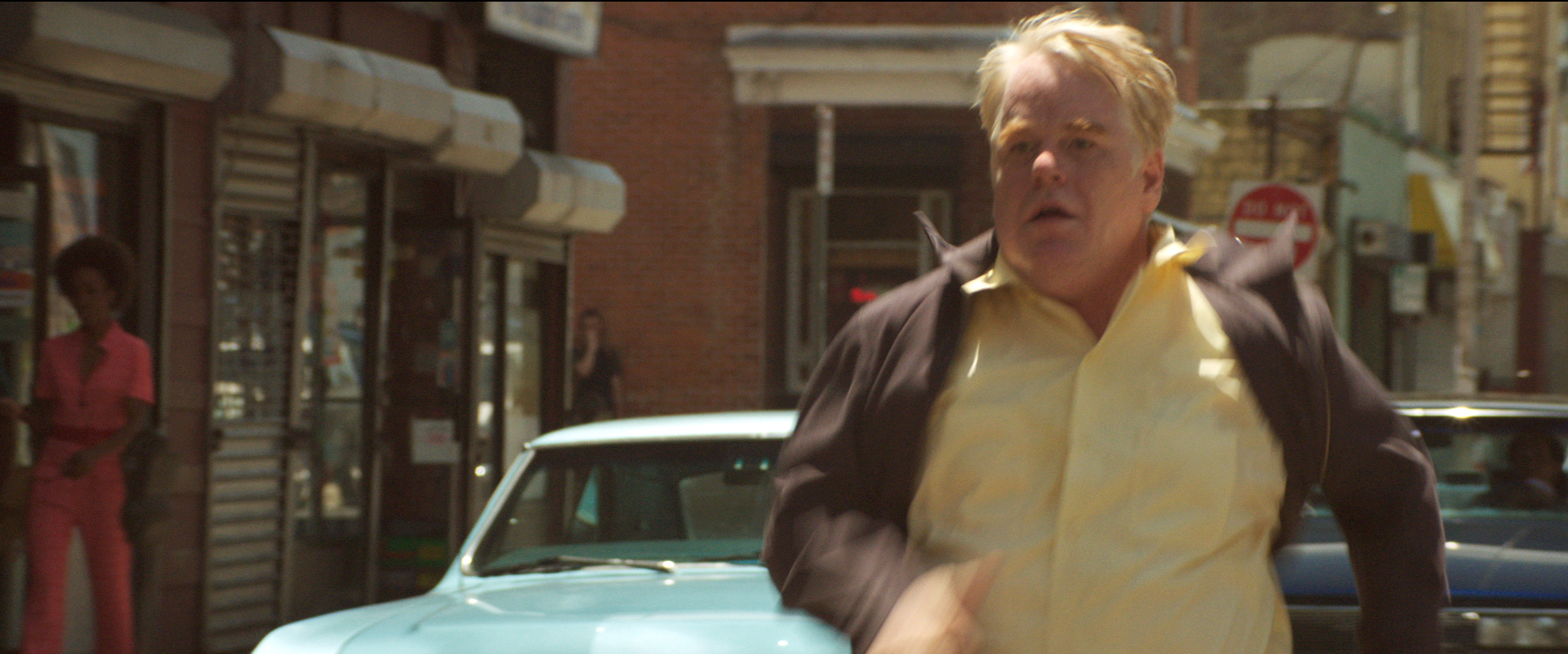God’s Pocket
Opens Fri., May 16 at Varsity. Rated R. 88 minutes.
It is no disrespect to the late Philip Seymour Hoffman to say that he was often difficult to look at onscreen; his lack of vanity saw him embracing schlubby, disheveled, or out-and-out gross characters. Hoffman’s February death left a few projects still awaiting release, of which God’s Pocket is the first to hit theaters. True to form, he looks terrible in it.
But does he inhabit his role with his customary uncanny veracity? He does. In this period-set adaptation of a 1983 novel by Pete Dexter (now a Whidbey Island resident), Hoffman plays Mickey Scarpato, a flabby working-class mug in a careworn Philly neighborhood called God’s Pocket. Mickey is married to the unsatisfied Jeanie (Christina Hendricks), whose appalling son from a previous marriage, Leon (Caleb Landry Jones), is truly the lint in God’s pocket. When this creep is killed at a construction site, the mysterious death raises the curiosity of gangsters and a famous newspaper columnist (Richard Jenkins, the Dexter figure). If the latter can stop drinking himself in the direction of oblivion and shagging newspaper groupies (wait, those exist?), he might stumble on something significant. He might even get a crush on Jeanie.
God’s Pocket director John Slattery is best at prowling the streets and alleys of the neighborhood, which is so insular that even a regular Joe like Mickey can’t ever be fully accepted because he isn’t from there. We’re told this is significant, but it doesn’t seem to matter all that much to hapless Mickey. There’s good local color, especially with John Turturro’s butcher (or whatever he is—everybody’s got a shady sideline), Eddie Marsan’s venal undertaker, and various barflies and construction workers. Also, veteran actress Joyce Van Patten nails a very brief turn (that’s how a pro does it, folks). Those performances reflect on Slattery’s taste with actors; he’s an actor himself, best known for his impeccable turn as white-haired devil Roger Sterling on Mad Men.
None of which entirely brings the movie to life, or locates its reason for being. The other characters are vivid, and the sad/dreamy Jenkins could make an art form out of slouching—but where does that leave Mickey? Hoffman, leading with his beer gut and reacting to each new disaster with head-down resignation, is unquestionably that guy. But he’s lost amid the movie’s blue-collar bustle. Everything here is trying just a little too hard to convince you of its authenticity. Everything except Hoffman, who appears to know a lot about disappointment and bad choices.
film@seattleweekly.com







